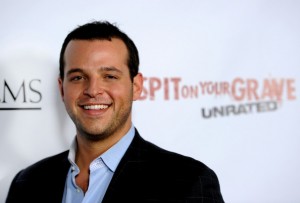Daniel Franzese is urging people to help reduce the stigma around HIV/Aids
The actor revealed he is confident that HIV will be beaten but requires conversations around the virus
By Steve Brown

Daniel Franzese wants people to help reduce the stigma around HIV/Aids to prevent the virus from spreading.
The Mean Girls actor has been an outspoken advocate and ambassador to the Elizabeth Taylor Aids Foundation and ahead of the National Gay Men’s HIV/Aids Awareness Day, the actor has urged people to find a way to reduce the stigma around the virus.
In a comment piece to the Advocate, Franzese said: “It’s 2018; we will overcome this epidemic. HIV doesn’t have to be a death sentence, and disclosure doesn’t have to be scary.
“In fact, when people living with HIV are on medication and durably undetectable, we now know that there is effectively no risk of transmitting the virus sexually.
“We urge you to show your support by finding a way to engage in reducing stigma and starting a conversation today in honour of National Gay Men’s HIV/AIDS Awareness Day.
“Start a dialogue with someone in your family and friends circle. Share some information and share the love.
“We can reverse the alarming trends among gay/bi/MSM and totally eradicate HIV stigma and continually reduce new HIV acquisitions once and for all.
“We have all the tools, but all we need is you. And we can do it together.”
He then continues that people need to lobby the government for better HIV policies and education is vital to the eradication of the virus.
Franzese continued: “There is no more important of a time for us to create an open dialogue around these facts and issues surrounding today’s age of prevention and treatment.
“We need to continue to lobby Congress for better HIV policies and we also need to educate our youth.
“Access to LGBTQ-inclusive, comprehensive sexual and reproductive health education has never been more paramount.
“We must have more queer-competent health services and talk to doctors about prevention strategies like PrEP and PEP as well as best practices for how to care for yourself if you do contract HIV.
“Mostly, we must overturn years of stigmas and “isms” by developing strong alliances with the straight-identifying community.”
